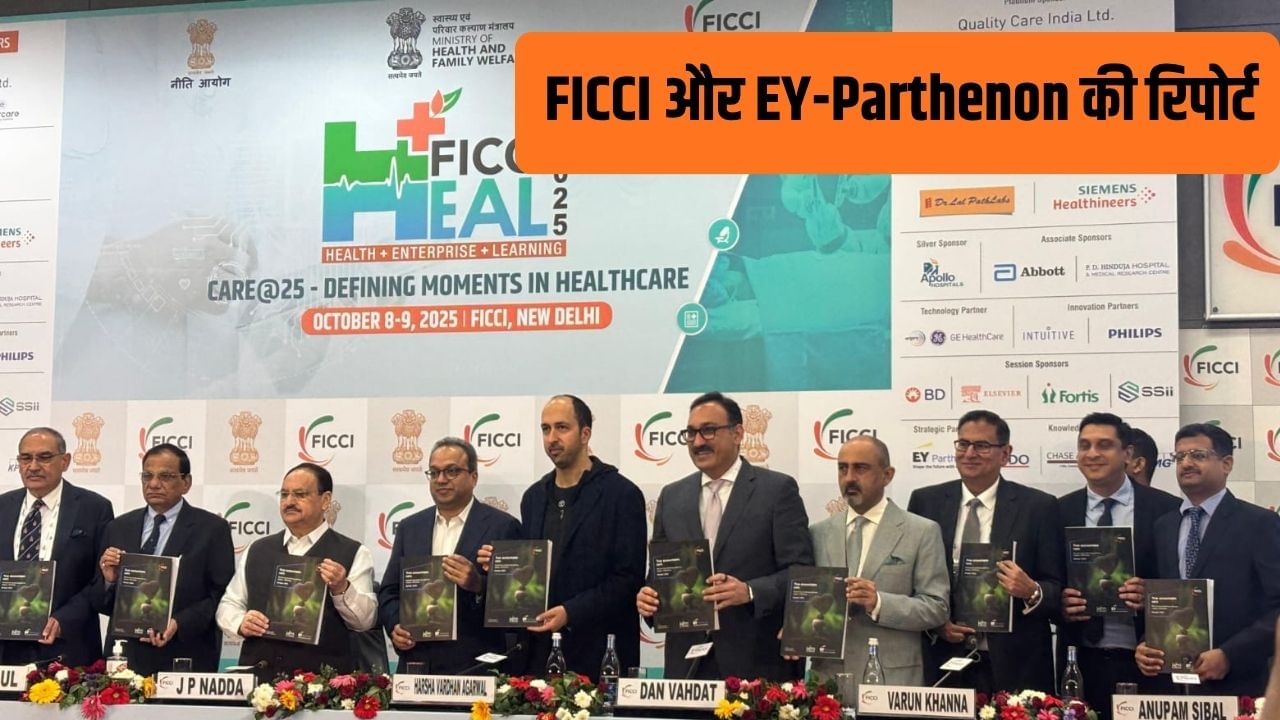New report of FICCI and EY-Parthenon.
Now most Indian patients want open and reliable information regarding treatment. According to a new report by FICCI and EY-Parthenon, 83% patients want easy access to accurate and clear information about hospitals and treatment, while about 90% patients are ready to spend a little more if they are guaranteed better quality.
True Accountable Care: Maximizing Healthcare Delivery Impact, Efficiently The report explains how India’s healthcare The system can be made better, cheaper and reliable.
Treatment is still expensive in India
The report says that India’s health services are cheaper than other countries, but the cost of treatment still remains a burden for the common people.
In big private hospitals, the daily expenditure on a patient ranges from Rs 30,000 to Rs 40,000. In big super specialty hospitals of metro cities, this expense reaches up to Rs 70,000. Yet, the return on investment in this sector is only 13%, whereas in other sectors like FMCG or retail it is more than 25%.
According to the report, the average treatment cost in a private hospital is around Rs 58,000, which is more than the annual expenditure of half the families in the country. The situation is even more difficult in rural areas. There are about 2530% people who do not have any health insurance, which means they have to pay from their own pocket for treatment.
Patients need transparency, doctors also ready
Kaivan Movdawala, healthcare leader at EY-Parthenon, said India’s healthcare system has made great strides, but the coming years will bring new pressures due to an aging population and rising disease burden. The good thing is that now patients want transparency and doctors are also ready to share the results of their treatment.
Akshay Ravi, second partner of EY-Parthenon, said that now both the government and private hospitals are serious about quality and patient experience. He says that now is the time to focus on quality and not quantity.
Varun Khanna, co-chairman of the FICCI Health Services Committee, said, this report shows where we have reached and the direction we should go next. The good thing is that 90% of doctors believe that it is necessary to set uniform standards and results for treatment.
FICCI Chairman Dr Harsh Mahajan said, if we promote accountable and quality treatment, India can create a healthcare system that is both reliable and affordable.
Know what is special about the report
- Since 2000, the bed capacity of hospitals in India has almost doubled.
- MBBS seats in medical colleges have increased five times.
- There has been a tremendous increase in the number of advanced treatments like cath labs and cancer machines.
- If the current situation does not improve, the number of hospitalized patients may triple by 2047, for which 2030 lakh new beds will be required.
- If the treatment approach becomes outcome-based, then hospitalization can be reduced by 2030%.
- Only one-third of the patients get real information related to the quality of hospitals. Most people trust the doctor’s recommendation or diagnosis.
- Less than 10% of private hospitals are NABH accredited and only 2% of labs are NABL certified.
The report says that now India should move towards digital and data-based health system. For this, a scheme named VALUE Framework has been given, in which emphasis is on things like electronic health records, AI technology and real-time data sharing.
Along with this, the report has also suggested 7C Framework — that is, there is a need to take steps like quality, cost control, coordination of treatment, patient empowerment and *digital engagement.
